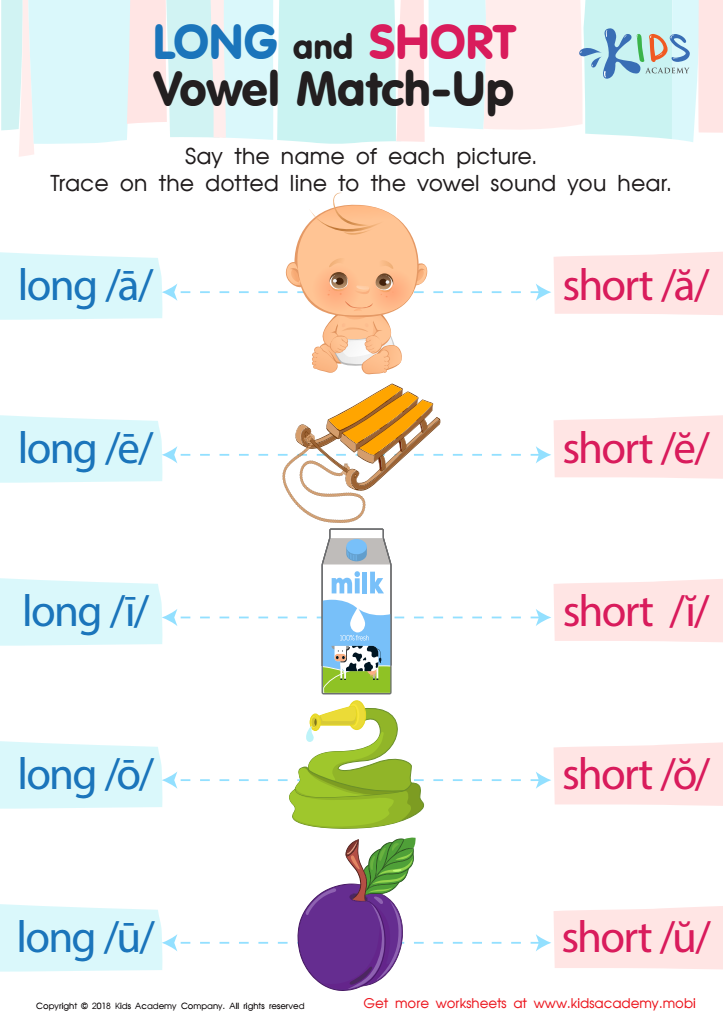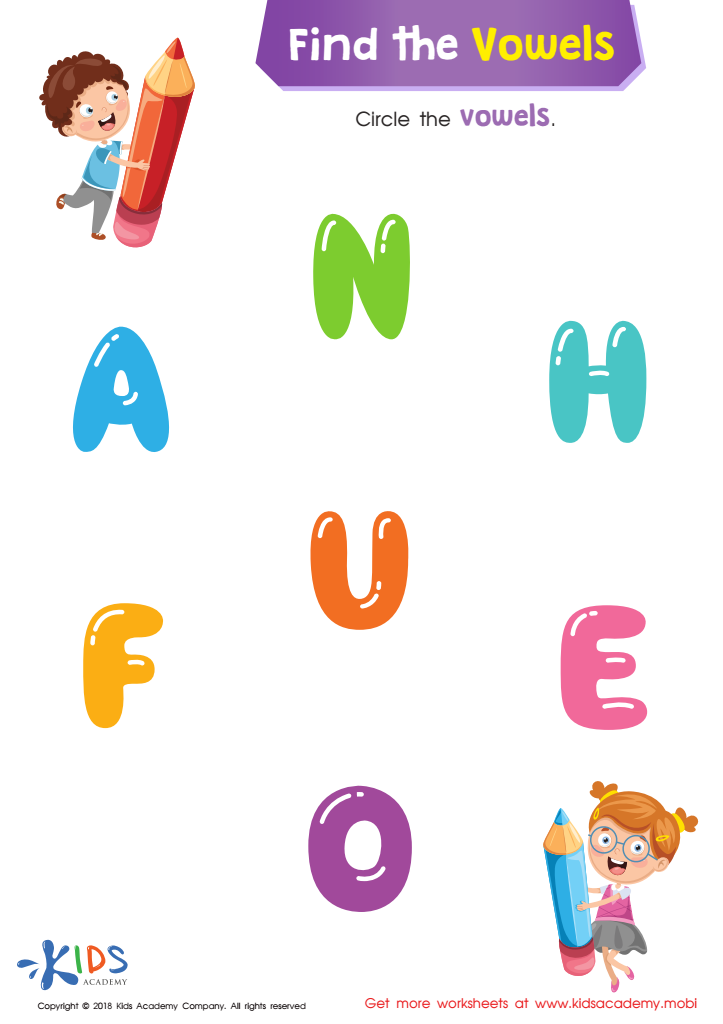Vowel Recognition Normal Vowels and Consonants Worksheets for Ages 4-8
6 filtered results
-
From - To
Unlock the world of letters with our Vowel Recognition Worksheets for Ages 4-8! Designed to enhance early literacy skills, these engaging activities focus on normal vowels and consonants, providing young learners with a solid foundation in language. Each worksheet features fun illustrations and interactive exercises that make learning about vowels exciting and approachable. From identifying vowel sounds to recognizing their usage in words, children will gain confidence in their reading and writing abilities. Perfect for home or classroom use, our worksheets foster essential skills while keeping students actively involved and entertained. Start your child's language journey today with our dynamic resources!


Long and Short Vowel Match up Reading Worksheet


Let's Check Long Vowels: Assessment Worksheet


Short Vowels /e/, /i/, and /u/ Worksheet


Short Vowel Eggs Worksheet


Find the Vowels Reading Worksheet


Long and Short Vowel Sentences: Assessment Worksheet
Vowel recognition is crucial for children aged 4-8 as it serves as a foundation for their reading and writing skills. Vowels are the building blocks of words, and understanding them plays a key role in phonics, the relationship between letters and sounds. When children master vowel recognition, they can decode words more easily, facilitating reading fluency and comprehension.
For parents and teachers, focusing on normal vowels (a, e, i, o, u) alongside consonants is essential for developing literacy skills. Young children often confuse vowel sounds, which can lead to difficulties in spelling and pronunciation. Regular practice with vowel recognition helps reinforce these sounds, allowing children to form more accurate and diverse words.
By cultivating this skill, educators and parents unlock a child's ability to engage with storytelling, express themselves through writing, and develop overall language expertise. Supporting vowel recognition not only enhances a child’s academic performance but also boosts their confidence as learners, making it easier for them to communicate and connect with peers.
In essence, prioritizing vowel recognition fosters a love for reading while equipping children with essential literacy tools necessary for success in school and beyond.
 Assign to My Students
Assign to My Students















